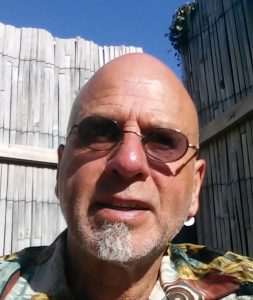Piripi Whaanga has a MA in Philosophy developing a practical New Zealand tikanga that connects kiwis. He is a published author and contributor of articles to e-magazines, and journals as well as producing radio programmes. An accomplished songwriter and performer.
Balancing the needs of the many with personal responsibility is a concept that needs re-emphasizing in contemporary New Zealand culture. It’s probably true around the world but a native Māori virtue called mana, gives New Zealanders a unique chance to rediscover this cultural well-being at a time when countries are being asked to take in refugees.
At the time of the treaty at Waitangi in 1841 between the representative of the British Crown and Māori tribes, mana was an essential ingredient of cultural well-being, of securing cooperation for peaceful settlement. In a holistic philosophy, Māori saw themselves as part of the environment, descended from a Sky-father and Earth-mother, whose children became the atua or gods who looked after the land and seas. Mana or authority can be seen as the tapu, the sacredness of the gods. Everyone has it. Tapu balanced the exercise of power with cautions against its misuse. Mana could be enhanced with compassion and wisdom or degraded by rash unthinking acts. Unfortunately subsequent settler governments didn’t agree with a sharing of power like this and land was taken by legislation and then force. In the process, Māori culture was suppressed and Māori became refugees in their own country.
Māori tīkanga or functions, like mana, then had to adapt to Pākehā ideologies and their practice today is a tribute to the resilience and holistic flexibility of the culture as well as to the intermarriage between races that was common from the first traders. Māori were quick learners of biculturalism and Pākehā are only now catching up.
But the original concept of mana is still pivotal to the well-being of all New Zealanders. It’s the rationale behind the contemporary settlement of land and resource claims, that of restoring mana to the tribe through providing a commercial base. Mana is not a concept easily understood by the average Kiwi, as Māori philosophy or mātauranga Māori was officially suppressed by an act in 1907. This suppression was lifted some years later but the damage was done, the tōhunga, the practitioners and the contexts were gone. At present, Western paradigms define mana as power and that is an inadequate explanation. There is a need to develop a comparative New Zealand Māori philosophy that can adapt and use the best of indigenous philosophies and I would include Pākehā social theories in that.
Mana was traditionally exercised by a leader, a rangatira . This is a combination of two words, ranga –to weave and tira – a group of people. So the leader has a personal responsibility to harmoniously balance the needs of the many. Does mana seem like a virtue that could help your country find happiness and flourish.


See the importance of mana for a rangatira weaving the family together. And Piripi you are a great role model for your mokopuna.
you have an incredible weblog here! would you prefer to make some invite posts on my blog?